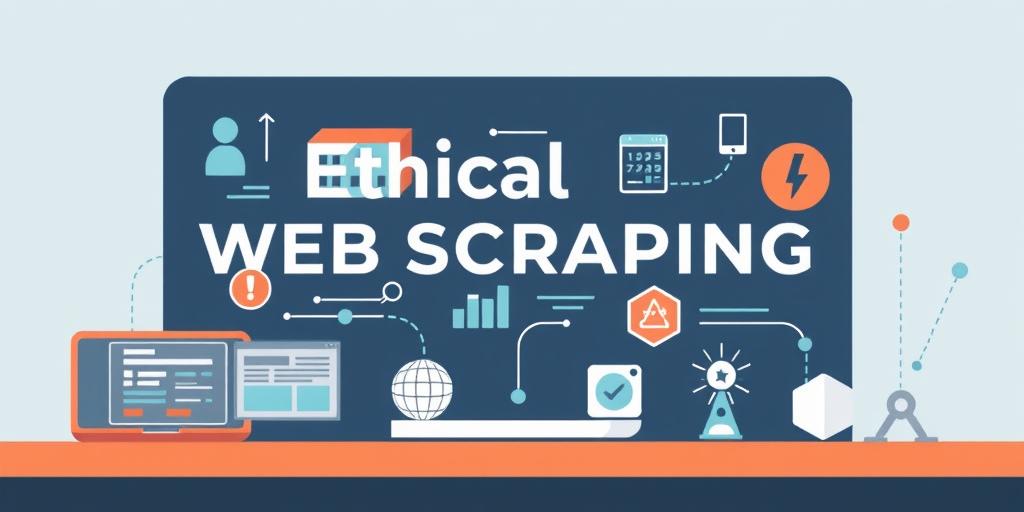Web scraping is a powerful technique for extracting data from websites, but it's crucial to do it ethically and responsibly. One of the key tools for ethical web scraping is using proxies. This guide will walk you through the basics of ethical web scraping with proxies, ensuring you can gather data without causing harm or violating terms of service.
Understanding the Ethics of Web Scraping
Before diving into the technical aspects, let's clarify what ethical web scraping means:
- Respect
robots.txt: This file tells you which parts of the site you're allowed to scrape. - Don't overload the server: Make requests at a reasonable rate to avoid slowing down the website for other users.
- Obey terms of service: Always read and adhere to the website's terms of service.
- Use data responsibly: Be transparent about how you're using the data you collect.
Why Use Proxies for Ethical Web Scraping?
Proxies act as intermediaries between your computer and the websites you're scraping. They offer several benefits for ethical web scraping:
- Avoiding IP Bans: If a website detects too many requests from a single IP address, it may block that IP. Proxies allow you to rotate IP addresses, reducing the risk of getting banned.
- Geographic Restrictions: Some websites restrict access based on location. Proxies can help you bypass these restrictions by using servers in different geographic locations.
- Load Balancing: By distributing your requests across multiple proxies, you can reduce the load on any single server, further minimizing the risk of overloading the website.
Types of Proxies
There are several types of proxies available, each with its own characteristics:
- Datacenter Proxies: These are the most common type of proxies and are hosted in data centers. They are generally faster but may be easier for websites to detect.
- Residential Proxies: These proxies use IP addresses assigned to real users, making them harder to detect. They are generally more expensive than datacenter proxies.
- Mobile Proxies: These proxies use IP addresses assigned to mobile devices. They are also difficult to detect and can be useful for scraping mobile websites.
How to Use Proxies for Web Scraping
Most web scraping libraries and tools support the use of proxies. Here's a general outline of how to use them:
- Choose a Proxy Provider: Select a reliable proxy provider and purchase a plan that suits your needs.
- Configure Your Web Scraping Tool: Most tools allow you to specify a list of proxies to use. You can rotate through this list to avoid detection.
- Set Request Intervals: Space out your requests to avoid overloading the server. A good starting point is to wait a few seconds between requests.
- Monitor Your Proxies: Keep an eye on your proxies to ensure they are working correctly. Replace any proxies that get blocked.
Best Practices for Ethical Web Scraping
Here are some additional tips to ensure you're scraping ethically:
- Identify Yourself: Include a
User-Agentheader in your requests that identifies your scraper. This allows website owners to contact you if there are any issues. - Cache Data: If you need to scrape the same data repeatedly, consider caching it locally to reduce the number of requests you make.
- Be Transparent: If you're using the data for a public project, be open about your data sources and methods.
Conclusion
Ethical web scraping with proxies is essential for responsible data collection. By respecting website terms, using proxies to avoid IP bans, and following best practices, you can gather the data you need without causing harm or violating ethical standards.









